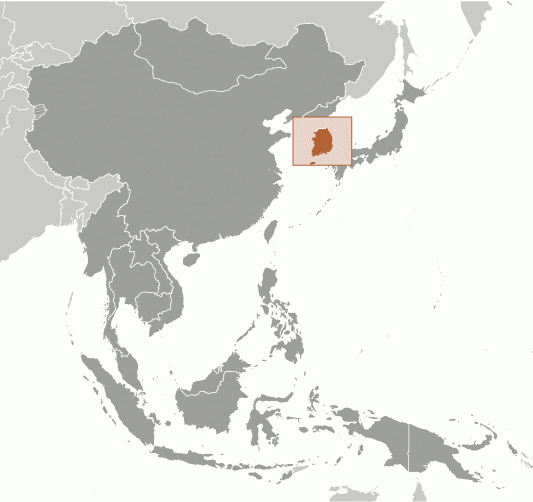EPA Collaboration with South Korea

The U.S. Environmental Protection Agency collaborates with the Ministry of Environment Korea to protect public health and the environment. Under the U.S.-Korea Free Trade Agreement (KORUS) and associated Environmental Cooperation Agreement, EPA joins the Department of State, U.S. Trade Representative, and other U.S. agencies in engagement on shared priorities. These include addressing the climate crisis, promoting circular economy approaches, reducing plastic pollution, addressing mercury pollution, and addressing air and water pollution. U.S. and Korean agencies periodically meet to review government-wide progress on environmental cooperation. Most recently, this occurred at the Fourth Environmental Cooperation Commission meeting between which was held in July 2024 in Seoul.
Explore our work in South Korea:
Activities
Improving Air Quality

- In September 2024, EPA’s Office of Transportation and Air Quality worked with the Korea Ministry of Environment to host the 6th International Summit on Vehicle Emissions Compliance Testing and Enforcement in Seoul, South Korea. The Summit is a gathering of directors from countries that have the ability and resources to conduct compliance and enforcement-level evaluations and actions with the global light-duty vehicle industry. During the visit, EPA officials also visited with electric vehicle battery manufacturers.
- EPA and the Republic of Korea jointly participate in the Asia-Pacific Mercury Monitoring Network (APMMN), a cooperative effort to systematically monitor mercury in air and rainwater through the Asia-Pacific Region. Through APMMN, EPA works with partners to build monitoring and laboratory analytical capacity, address mercury pollution, and address the Minamata Convention.
- EPA homeland security research scientists participate in Winter Tiger U.S.-ROK Radiological Nuclear Consequence Management Scenario-Based Policy Discussions. These bilateral meetings focus on terrorism incident response capabilities including first response, consequence management, and public messaging.
- In 2023, EPA Region 1 officials met in Boston with researchers from the Korea Environment Corporation to discuss volatile organic compound emissions compliance monitoring methods.
- EPA participated in the Korea-United States Air Quality Study (KORUS-AQ) mission to observe air quality across the Korean peninsula and surrounding waters. Agency officials worked with the U.S. National Aeronautics and Space Administration (NASA), the Korean National Institute of Environmental Research, and others to integrate observation from satellites, aircraft, and ground sites with air quality models to better understand the factors controlling air quality across urban, rural and coastal boundaries in East Asia. EPA provided expertise in ground-based measurements, focusing on nitrogen oxides, ozone and particulate matter. This allowed EPA to continue evaluation of air quality monitoring methods and tools, provide data to the air quality modeling community to advance global-scale modeling, and apply knowledge gained to support further ground-based measurements.
Expanding Access to Clean Water
- EPA’s Center for Environmental Solutions and Emergency Response has a cooperative research and development agreement (CRADA) in place with the Korean Water Partnership. From 2021 to 2025, they are engaging in collaborative will be research on the usage of ultraviolet light to disinfect water.
- In March 2023, EPA researchers traveled to Korea to participate in the Water Korea 2023 expo. This was an opportunity to deliver presentations on treatment and detection process for microbial contaminants and discuss the joint research being undertaken with partners in the Korea Water Cluster and professors at Hanyang University and Gwangju Institute of Science and Technology.
- In January 2023, U.S. EPA welcomed a delegation from the Ministry of Environment, Korea Water Resources Corporation, and National Institute of Environmental Research to Cincinnati. This visit was to learn about analytical methods and techniques to detect, treat, and remove microcystins and algal toxins from drinking water. A large EPA team joined Ohio EPA and Greater Cincinnati Water Works to discuss measurement and analytical methods, drinking water treatment methods, and federal and state regulatory approaches.
Agreements
View the U.S. Agreement on Environmental Cooperation:
View EPA’s Memorandum of Understanding with South Korea:
Partners
- Ministry of Environment
- Korean National Institute of Environmental Research
- Korea Environment Corporation
- Korea Water Partnership
- U.S. Embassy in Seoul
